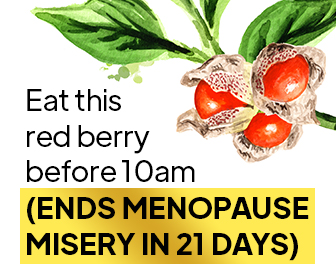Menopause is a natural and inevitable part of a woman’s life, and it can be a time of significant physical and emotional changes. Along with hot flashes, night sweats, and mood swings, many women experience increased stress levels during this time. This can have a significant impact on a woman’s quality of life, leading to anxiety, depression, sleep disturbances, and even chronic health conditions.
In this article, we’ll explore the connection between stress and menopause, and discuss some effective strategies for managing stress and improving quality of life during this transition.
The Link Between Menopause and Stress
Menopause is a complex biological process that involves significant hormonal changes, including a decrease in estrogen and progesterone production. These hormonal shifts can impact the body in a number of ways, including the regulation of stress. Research has shown that menopausal women may be more susceptible to stress, and the stress hormone cortisol, due to these hormonal changes, which can lead to an increased risk of anxiety and depression.


Furthermore, menopause often coincides with other major life changes, such as children leaving home, retirement, or caring for aging parents, which can add to the stress and emotional upheaval of this time. Additionally, women may experience physical symptoms like hot flashes and night sweats that can cause sleep disturbances and further increase stress levels.
Effective Strategies for Managing Menopausal Stress
Fortunately, there are several effective strategies for managing stress during menopause that can improve quality of life and promote overall well-being.
- Supplementation: MenoRescue™ is designed to promote healthy cortisol levels. Cortisol is the primary stress hormone and research shows that cortisol becomes elevated during menopause, which can lead to not only more severe menopause symptoms, but additional health complaints that may not be specifically related to menopause itself. To order MenoRescue™, go here: https://wellme.com/shop/menorescue/
- Mindfulness Meditation: Mindfulness meditation is a technique that involves paying attention to the present moment without judgment. It has been shown to reduce stress and improve mood in menopausal women. In a study published in the Journal of Menopause, researchers found that mindfulness meditation was effective in reducing stress, anxiety, and depression symptoms in menopausal women.
- Exercise: Exercise has long been known to be an effective stress-reducing tool. In addition to improving physical health, regular exercise can reduce stress, anxiety, and depression symptoms. A study published in the Journal of Women’s Health found that regular exercise was effective in reducing stress and improving quality of life in menopausal women.
- Relaxation Techniques: Relaxation techniques, such as deep breathing exercises, progressive muscle relaxation, and visualization, can be effective in reducing stress and promoting relaxation. A study published in the International Journal of Women’s Health found that relaxation techniques were effective in reducing stress, anxiety, and depression symptoms in menopausal women.
- Social Support: Social support can play a key role in managing stress during menopause. Connecting with friends, family, or a support group can provide emotional support, validation, and a sense of belonging. In a study published in the Journal of Women’s Health, researchers found that social support was effective in reducing stress and improving quality of life in menopausal women.
- Cognitive Behavioral Therapy: Cognitive behavioral therapy (CBT) is a form of talk therapy that can be effective in reducing stress, anxiety, and depression symptoms in menopausal women. CBT involves identifying negative thought patterns and behaviors, and replacing them with more positive and adaptive ones. A study published in the Journal of Menopause found that CBT was effective in reducing stress and improving quality of life in menopausal women.
- Self-Care: In addition to these strategies, self-care is also essential for managing stress during menopause. This can include eating a healthy diet, getting enough sleep, and engaging in activities that bring joy and fulfillment. It’s important to prioritize self-care and make time for activities that promote relaxation and stress reduction.
In conclusion, stress is a common experience during menopause, but it doesn’t have to be overwhelming. By incorporating these strategies into a personalized approach to managing stress, women can improve their quality of life and promote overall well-being during this transition. With the right tools and support, women can navigate menopause with grace and ease.








